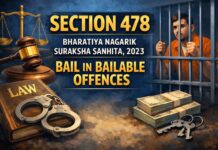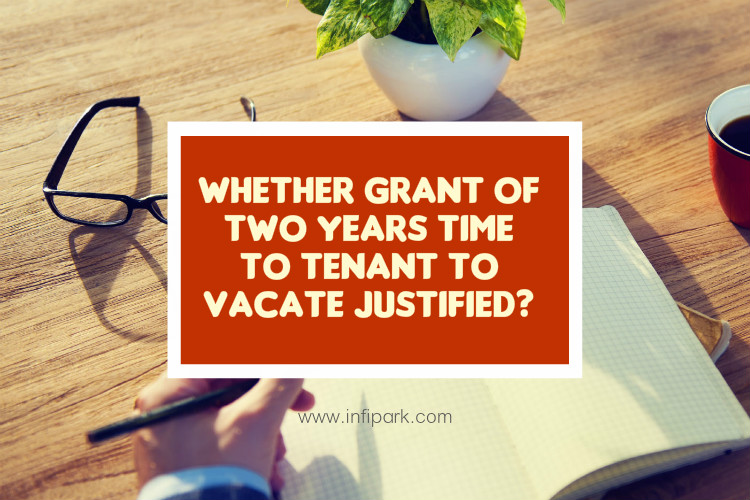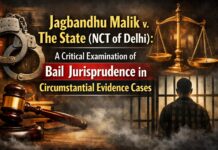RAMESH CHANDRA BHANDARI (THE APPELLANT) IS THE owner/landlord of the suit premises, which is situated at Almora (Uttaranchal). The appellant was an Army official who retired in 1983. He let out the suit premises (shop) to the respondent on a monthly rent of Rs. 800/-, who carries on his business in the suit shop.
The appellant filed an application under Section 21(1)(a) of the U.P. Urban Buildings (regulation of Letting, Rent and Eviction)Act, 1972 (theAct) against the respondent seeking his eviction from the suit premises. The eviction was sought on the ground of appellant’s bona fide need for starting a business for his son who is physically disabled.
Ram Singh Salal-the respondent denied the need and contested the eviction petition filed by the appellant. The matter reached to Supreme Court at the instance of the appellant in the first round of litigation which eventually ended in granting liberty to the appellant to file a fresh eviction petition on the changed circumstances against the respondent for his eviction from the suit shop.
This is how the second round of litigation against started in 1997 between the parties out of which this appeal arises. The ground for seeking eviction was bona fide need for the son to start business based on subsequent events. The Prescribed Authority/ Civil Judge (Sr. Division) Almora, Uttarakhand by his order dated 8.5.2009 in Rent case No. 2 of 2006 decreed the appellant’s eviction petition and accordingly directed the respondent to vacate the suit shop within 2 months. It was held that the appellant’s need to seek eviction as pleaded in the petition is bona fide and that he has no other alternative suitable accommodation of his own in the city where his son can carry on the business.
Against the said order, the respondent filed an appeal being Rent Appeal No. 3 of 2009 before the District Judge, Almora, who by order dated 10.7.2012 allowed the appeal and set aside the judgement passed by the prescribed authority.
Felt aggrieved by the said judgement, the appellant filed writ petition before the High Court. By impugned order, the High Court allowed the petition and while restoring the order of the prescribed authority and ordering respondent’s eviction from the suit ship, granted 2 years’ time to the respondent to vacate the suit shop.
Against the judgement of the High Court special leave petition was filed. The Supreme Court accepted the appeal in part and that the impugned order was modified, holding that Section 21 of the Act was amended to give more benefit to the landlords who were serving or retired Indian soldier or their widows.
The operative part of the judgement read as under :
In our considered view, the High Court having rightly allowed the appellant’s writ petition by accepting the need of the appellant to be the bona fide need of his son for starting a business in the suit shop was not justified a business in the suit shop was not justified in granting 2 years’ time to the respondent to vacate the suit shop. In the absence of any justifiable cause alleged by the respondent to prove extreme hardship and further in the absence of any statutory provision or any contract between the parties to that effect, there was no justification on the part of the High Court to exercise its discretion and grant 2 years’ time to the respondent to vacate the suit shop.
The High Cour t, in our view , should have appreciated the fact that the present litigation was the outcome of the second round of litigation after conclusion of the first round which began in 1986 and reached up to the Court and in this process this litigation consumed 20 years. In these circumstances the hardship is suffered more by the appellant as compared to the respondent.
****************************************
The Act is question is a legislation which provides for regulation and control of letting and rent of the accommodation. It regulates and control eviction of tenants from accommodations and for other matters connected therewith as incidental thereto. It further provides for expeditious trial of eviction cases on ground of bona fide requirement of certain categories of landlords. The State legislature, in its wisdom further considered appropriate to give more benefit to the landlords who are serving or retired Indian soldier or their widows and accordingly amended Section 21 by Act No. 17/1985. The amendment inter alia provides a statutory deeming presumption of the need set up by such landlord to be sufficient if he seeks the eviction for his personal requirement or for the benefit of any member of his family. The object behind this amendment is to relieve such landlord from the hardship so that he is able to get the building/accommodation vacated early for his personal use. In this case, we find that this benefit was denied to the appellant due to long pendency of the case.
****************************************
We grant time to the respondent up to “31st August, 2016” to vacate the suit shop subject to the respondent depositing with the appellant the entire arrears of rent, (if there are arrears) up to date at the rate paid by the respondent within one month and further subject to respondent paying to the appellant the rent at the same rate up to 31st August, 2016 as damages by way of use and occupation including cost amount award by this Court within one month and furnish undertaking before this Court within one month to vacate the suit shop within the time fixed by the Court.
****************************************
Reference : Supreme Court. Ramesh Chandra Bhandari v. Ram Singh Salal, civil appeal no. 575 of 2016.


















